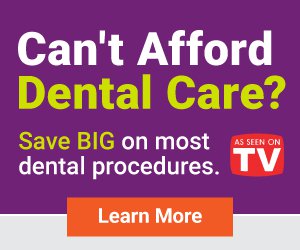Does Mouthwash Really Work? The Answer May Surprise You
Every mouthwash bottle claims to solve all your problems. Supposedly, mouthwash fights gingivitis, bad breath, and cavities. But does mouthwash really work, or is it just a marketing ploy to get you to buy? Find all the answers you need here.
5 Types of Mouthwash You Can Choose
Not all mouthwashes are created equal. There are various brands and types of mouthwash with different goals. Learn about how these 5 popular types of mouthwash options work to help you decide which one’s right for you.
- Desensitizing Mouthwash: To reduce sensitivity, you can use a mouthwash that contains arginine. It’s best to consult your dentist about using desensitizing mouthwash to make sure it works well for you.
- Fluoride Rinse: For added protection against tooth decay, this kind of mouthwash generally contains about 0.05% of sodium fluoride (NaF). If you have trouble fighting off cavities, this mouthwash should work for you.
- Mouthwash for Bad Breath: Halitosis (aka bad breath) affects 25% of the US population. If your only concern is refreshing your breath with mouthwash, you should definitely use this kind. However, this mouthwash doesn’t always necessarily fight the germs in your mouth. So, it only masks the bad smell instead of removing the bacteria that cause bad breath.
- Teeth Whitening Mouthwash: One popular way to whiten your teeth at home is to use a whitening mouthwash. This kind of rinse contains a bleaching agent, commonly known as hydrogen peroxide. This helps to whiten teeth and remove stains over time.
- Anti-Plaque Mouthwash: This mouthwash inhibits plaque accumulation, which helps prevent gingivitis (inflammation of the gums). Active ingredients present in antiseptic mouthwash are thymol, triclosan, cetylpyridinium chloride, or chlorhexidine.
The Benefits That Prove That Mouthwash Does Work
1. Mouthwash Fights Gum Disease
Plaque naturally builds up on your teeth from bacteria and food. Tooth sockets and gums can get infected and inflamed when left untreated, resulting in gingivitis (Periodontal Disease).
2. Mouthwash Refreshes Your Breath
There isn’t a better way to start the day than with fresh, minty breath. Some mouthwashes not only add a refreshing fragrance to your mouth, they also kill the bacteria that causes bad breath.
3. Mouthwash Soothes Canker Sores
“Mouthwash can ease a canker sore by detoxing the area — reducing the amount of bacteria that can irritate the site,” Nicholas Toscano, DDS.
Rinsing with salt water is also effective for canker sores.
4. Mouthwash Reduces the Risk of Cavities
Fluoride reduces demineralization by strengthening and protecting the enamel on teeth. This helps strengthen them against future cavities.
5. Mouthwash Can Also Safeguard Your Pregnancy
During pregnancy, hormonal changes can lead to a higher risk of gingivitis in women. Bacterial infections that cause serious periodontal disease can lead to a greater chance of low birth weight in infants and premature delivery.
Disadvantages of Mouthwash That Make People Hesitate
Of course, mouthwash isn’t a magic cure. There are certain disadvantages to using mouthwash that everybody should know.
1. It’s Not a Substitute For Brushing and Flossing
Thanks to its minty freshness, a lot of people think that using only mouthwash is enough for your dental hygiene. While mouthwash does reach areas that a toothbrush doesn’t, it’s not as effective.
Brush and floss twice a day for two minutes. Let mouthwash complement this routine, not replace it.
2. Alcohol-Based Mouthwash Can Hurt Canker Sores
While non-alcohol-based mouthwash keeps growing in popularity, alcohol-based mouthwash is still on the market. That’s because alcohol kills bacteria and germs very effectively.
Yet, it’s a very harsh substance.
If you have canker sores or mouth ulcers, alcoholic mouthwash can make it even worse. These are all things you need to consider when deciding whether or not to use alcohol-based mouthwashes.
3. Increased Tooth sensitivity
The alcohol present in some mouthwashes will gradually dissolve the mucus layer, leaving teeth vulnerable. This can cause great sensitivity.
4. Reduce Benefits of Toothpaste
”Sometimes, there can be an interaction between the chemicals in the toothpaste and chemicals in the mouthwash and this means they cancel out the benefits of each other,” says Dr. Phil Stemmer from the Fresh Breath Center of London. He recommends leaving 30 minutes in between brushing and using mouthwash.
5. The Benefits Don’t Always Outweigh the Monetary Cost
Unless you suffer from cavities, gingivitis, or bad breath, mouthwash may not be worth it. If there’s no health benefit and you don’t even enjoy using it, mouthwash won’t work for you.
Situations Where Mouthwash Really Does Work
Not using mouthwash won’t be detrimental to your health. Still, there are some crucial reasons as to why many dentist recommend it:
If you suffer from these common dental issues, consider mouthwash:
- Gum disease
- Tooth decay
- Bad breath
- Periodontal disease from pregnancy
- Cavities
- Bacterial build-up from recent dental surgery
Don’t rely on mouthwash in these instances:
- Mouthwash isn’t an adequate replacement for brushing teeth.
- It does not actually cure dental disease, bad breath, or tooth decay. It works to promote dental health or simply mask bad breath.
- It is not suitable for young children under the age of 6.
How to Use Mouthwash
Using mouthwash regularly can be very beneficial to your oral health. Still, there are a lot of people who don’t use mouthwash correctly or effectively enough to reap the full benefits of a rinse.
If you plan on adding or keeping mouthwash in your dental regimen, there are few things to remember the next time you swish:
- A minute at a time: You should gargle and swish for at least 60 seconds. Most of the chemicals found in mouthwash won’t activate in under a minute.
- Brush and floss: Use mouthwash alongside other brushing and flossing. Remember that mouthwash gives your oral health a boost. It’s not a cure for problems.
- Stick to alcohol-free mouthwashes: Most of the problems associated with mouthwash come from the high alcohol content. Using alcohol-free rinse will be safer for your gums and teeth while still giving them the care they need.
- Choose the right mouthwash: The mouthwash you use needs to match the needs of your oral health. Ask your dentist what mouthwash is best for you. Nobody knows what your teeth need better than your dentist. They can recommend a specific type of mouthwash to ensure optimal oral health.
Talk to a Dentist About Mouthwash
Now that you know all the pros and cons of using mouthwash, you can decide for yourself whether it really does work. And if you’re ever in doubt, you should consult a dentist.
Sadly, dental appointments cost a lot of money, so most people avoid consulting dentists on important issues such as this. Luckily, with a Carefree Dental Card, you won’t have to worry about breaking the bank from a dental appointment.
This dental discount plan saves you 15%-50%* off your bill per visit in most instances at participating dentists for just $15.95/month for individuals or $19.95/month for families.
Get the same dental care at a lower cost by becoming a Carefree Dental member.
The Carefree Dental blog is not meant to be a substitute for professional medical advice, diagnosis, or treatment. The text and pictures within the content are intended for information purposes only. Readers should consult with a licensed dentist or healthcare professional before seeking treatment.
The Carefree Dental Card is not insurance and Carefree Dental is not an insurance provider.





